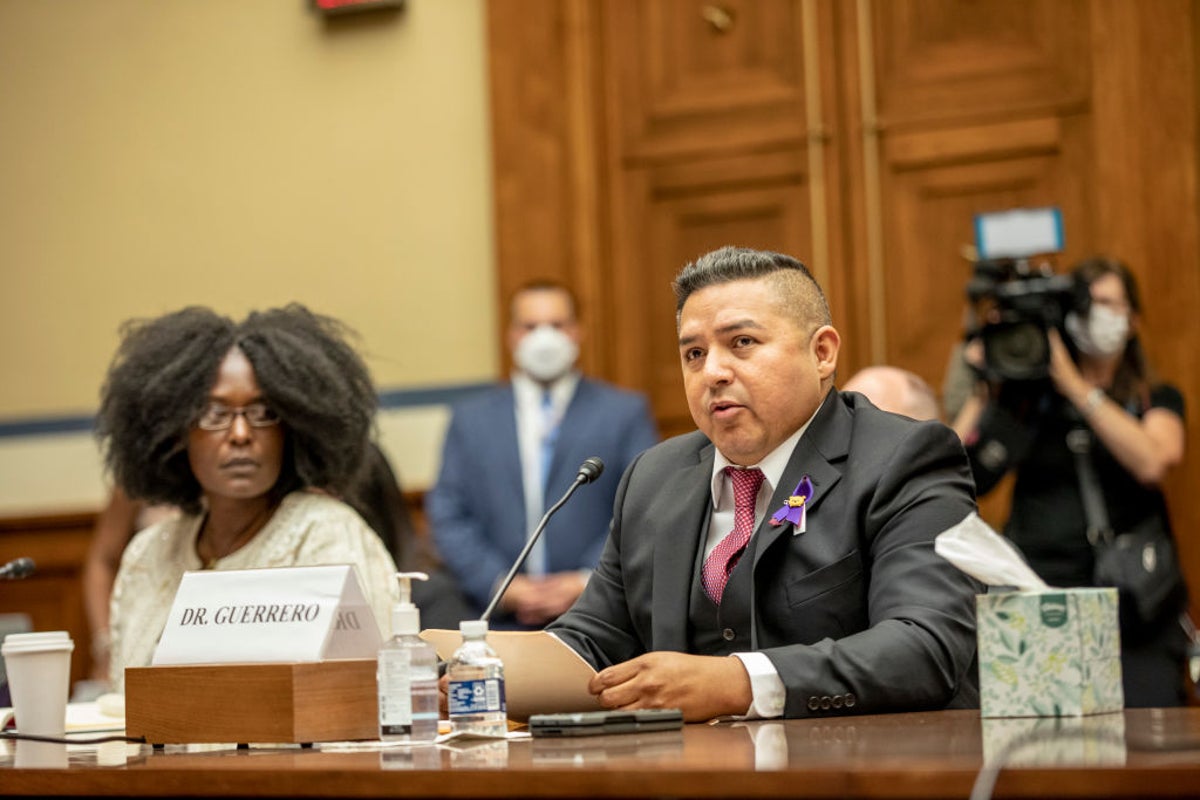
A pediatrician who responded to the massacre in Uvalde, Texas gave gripping testimony on Wednesday and described hearing families shouting the names of their children and begging hospital staff for information about their loved ones.
“Those mothers’ cries, I will never get out of my head,” Dr Roy Guerrero told lawmakers at a hearing of the House Oversight Committee called to hear stories of gun violence from families of victims and first responders.
“I know I’ll never forget what I saw that day,” added Dr Guerrero.
He would go on in his testimony to describe the brutal damage that the high-powered semiautomatic weapon used by the Uvalde shooter did to the bodies of children killed in the attack.
Describing a gruesome scene at a Texas hospital where he and others worked to save victims of the shooting, he recalled seeing two children who had been “decapitated”.
He also recounted telling the parents of one young girl, Miah, that their daughter was alive but injured.
“Sweet Miah, I’ve known her my whole life...when I saw Miah sitting there, I remembered seeing her parents outside...I raced outside to let them know that Miah was alive,” he said.”
Dr Guerrero portrayed his decision to testify before Congress as an extention of his efforts to fulfill the oath he took as a doctor, telling lawmakers that “I showed up because I am a doctor...I swore an oath, an oath to do no harm. After witnessing firsthand the carnage in my hometown of Uvalde, to stay silent would have been to betray that oath. Inaction is harm,” he said.
Like fellow witness Zeneta Everhart, he blamed Congress for allowing the ban on assault weapons to lapse in 2004. Mass shootings surged after the ban was allowed to expire; it had originally passed with bipartisan support under the Clinton administration.
The suspected gunmen in both Uvalde and Buffalo used AR-15-style rifles to carry out their attacks, and calls have reignited in the tragedies’ wake for the weapons to be banned from the civilian market once again. But senators working on compromise legislation in the evenly-divided Senate say that measure is unlikely to make it into the final legislation.







